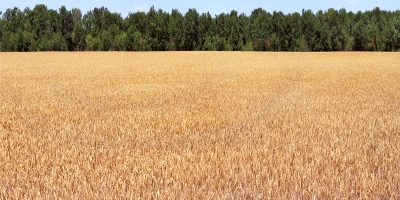 Genetically modified foods, also known as GMO (genetically modified organisms), are a hot topic in the news. Concerns over GM foods are growing as public interest groups protest their development, and push for mandatory labeling laws. What are GM foods and how concerned should you be?
Genetically modified foods, also known as GMO (genetically modified organisms), are a hot topic in the news. Concerns over GM foods are growing as public interest groups protest their development, and push for mandatory labeling laws. What are GM foods and how concerned should you be?
The term “GM food” or “GMO” is most commonly used to describe a crop plant that has been modified on the genetic level using the latest techniques in molecular biology. These modifications are made by isolating genes responsible for specific characteristics and inserting them into other plants, allowing those plants to take on the same characteristics.
Genetically modifying foods allow us to enhance desired traits such as:
- Pest resistance: Crop losses from insects can be devastating to farmers and result in MAJOR food shortages in developing countries, sometimes to the point of starvation. Also, consumers are concerned about the health/environmental effects of pesticide and fertilizer sprays. By modifying plants to be pest resistant, the use of pesticides and fertilizer sprays can be significantly reduced.
- Herbicide tolerance: Weed killers often are sprayed on crops to prevent the need for tilling and physical weed removal , which is expensive and time-consuming. For most crops, multiple herbicides are needed to prevent crops from being killed (which also is expensive and time-consuming). Modifying crops to be resistant to herbicides allows one type of herbicide to be used; this can potentially reduce the amount and variety of herbicides used.
- Disease resistance: Bacteria, fungi, and viruses can cause disease in plants. Modifying plants to resist infection is a primary goal of genetic modification.
- Cold tolerance: Unexpected frost can destroy seedlings. “Antifreeze” genes from cold-water fish have been implanted into tobacco and potatoes so that the plants are able to better tolerate cold weather.
- Drought tolerance: As farmable land is used for a rapidly growing population, farmers must be able to grow food in suboptimal locations. Designing plants that need less water to grow and tolerate high levels of salt in the soil may be essential to feeding the world’s growing population.
- Nutrition: Many Third World countries rely on single food items (e.g., rice) as the primary (sometimes only) food item in their diets. Unfortunately, diets containing such limited variety cause nutritional deficiencies. If food items such as rice can be modified to include additional nutrients, some deficiencies could be alleviated.
- Phytoremediation: GM trees are being developed and planted to clean up groundwater and heavy metal pollution.
While these benefits sound great, there is concern on multiple levels, and rightfully so. The potential for unintended consequence is hard to ignore when we are talking about taking antifreeze genes out of a fish and placing them into a potato. Many valid concerns exist, such as:
- Unintended harm to other organisms: Pollen from GM plants may kill insects that are not intended to be killed. Proper testing and rigorous evaluation of results must be conducted prior to implementation of each plant.
- Reduced effectiveness of pesticides: Concerns exist that insects will develop resistance to GM crops.
- Gene transfer: Another concern is that weeds will cross breed with crops that are GM and produce “superweeds” that are resistant to particular herbicides.
- Allergenicity: New, unknown allergens may be created by genetically modifying foods.
Take Home
In science, questions and doubts such as these are encouraged and welcome — after all, it is the doubt and questioning that drives advancements and better methods. Just because something is hard to understand doesn’t mean it can’t be true or beneficial. All genetic modification is not BAD; it may actually be one of the most important advancements for humankind. There is no WAY that our current agricultural system will be able to feed 10 billion people by 2050. Genetic modification has the potential to increase crop yields, reduce the use of pesticides, lower costs, and allow crops to grow in suboptimal environments. While the science of genetic modification requires fine-tuning and rigorous testing, the potential benefits should not be dismissed or ignored.
